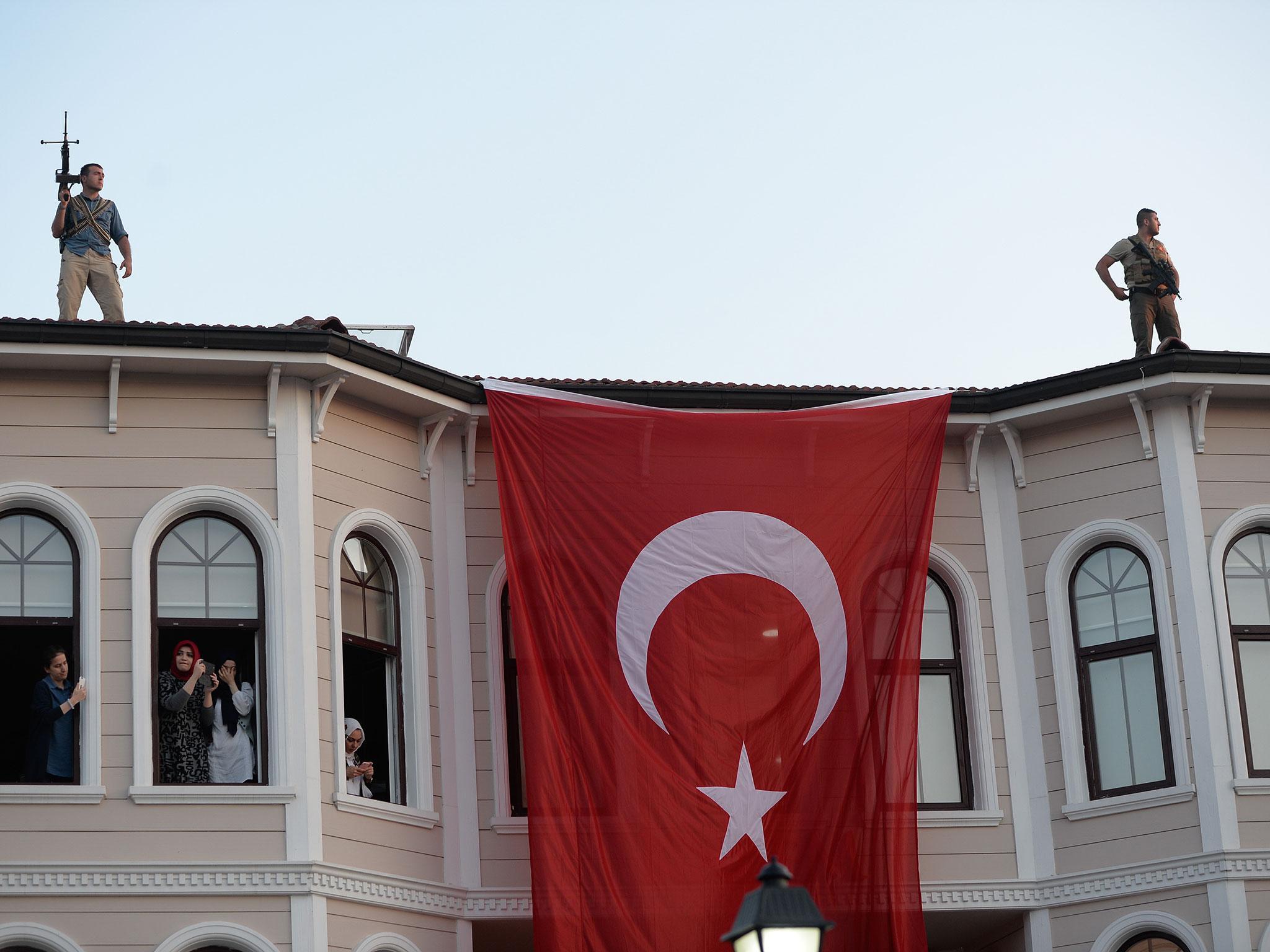This powerful series of tweets says all you need to know about the state of Turkey's democracy
Erdogan's post-coup purges have targeted at least 50,000 people

Your support helps us to tell the story
From reproductive rights to climate change to Big Tech, The Independent is on the ground when the story is developing. Whether it's investigating the financials of Elon Musk's pro-Trump PAC or producing our latest documentary, 'The A Word', which shines a light on the American women fighting for reproductive rights, we know how important it is to parse out the facts from the messaging.
At such a critical moment in US history, we need reporters on the ground. Your donation allows us to keep sending journalists to speak to both sides of the story.
The Independent is trusted by Americans across the entire political spectrum. And unlike many other quality news outlets, we choose not to lock Americans out of our reporting and analysis with paywalls. We believe quality journalism should be available to everyone, paid for by those who can afford it.
Your support makes all the difference.Turkish president Recep Erdogan has ordered that at least 131 media outlets suspected of inciting or sympathizing with this month's failed military coup be permanently shut down.
That includes three news agencies, 16 TV channels, 23 radio stations, 45 daily newspapers, 15 magazines, and 29 publishing houses, according to Al Jazeera.
Erdogan's post-coup purges have targeted at least 50,000 people — including soldiers, police, civil servants, and academics — suspected of inciting or sympathizing with the military uprising. At least 15,000 have been detained so far.
Journalists — long a favorite target of Erdogan's — have also been hastily targeted in the post-coup crackdown. As of Thursday, 42 journalists had been detained, according to Turkish analyst and journalist Mahir Zeynalov.
Zeynalov has been sharing photos on Twitter of the journalists as they are hauled away by Turkish police.
These are just a few of them:
The massive purges have given many analysts reason to believe that Erdogan — who called the failed coup “a gift from God” — is using the incident as an excuse to rid society of those who oppose his rule.
In the wake of roughly 14 terrorist attacks on Turkish soil in just over a year, Erdogan has attempted to significantly expand his presidential powers and quell dissent.
The US generally tries to avoid criticizing Turkey, which has the second-largest military in NATO and is a crucial ally in the fight against ISIS. President Barack Obama has expressed concern in the past about Erdogan's repressive tendencies, however.
“I've said to President Erdogan to remind him that he came into office with a promise of democracy,” Obama said during a press conference at the end of the Nuclear Security Summit in April.
“And Turkey has historically been a country in which deep Islamic faith has lived side by side with modernity and an increasing openness. That's the legacy that he should pursue rather than a strategy that involves repression of information and shutting down democratic debate.”
The US quickly condemned the attempted overthrow of Erdogan's government on July 15, however, and called on all parties in Turkey to “support the democratically elected Turkish government.”
In any case, the coup attempt — and the mass purges that have followed — “presents a dilemma to the United States and European governments,” Richard N. Haass, the president of the Council on Foreign Relations, told The New York Times shortly after the uprising was put down.
“Do you support a nondemocratic coup,” or an “increasingly nondemocratic leader?”
Read more:
• This chart is easy to interpret: It says we're screwed
• How Uber became the world's most valuable startup
• These 4 things could trigger the next crisis in Europe
Read the original article on Business Insider UK. © 2016. Follow Business Insider UK on Twitter.
Join our commenting forum
Join thought-provoking conversations, follow other Independent readers and see their replies
Comments